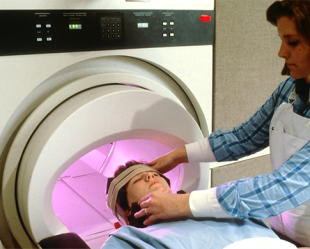- Environmental Standards like ISO 50001 Energy Management will help organisations cut costs and reduce carbon emissions
- Environmental Standards help to preserve nature and the environment
- The Standards can help organisations operate in more sustainable and efficient ways
Wednesday 14th October 2020
With the publication of the Government’s Climate Action and Low Carbon Bill last week, improving energy efficiency has never been higher up the agenda. The bill puts into law a commitment for a carbon neutral economy in Ireland by the year 2050.
Marking World Standards Day 2020, Ireland’s National Standards Body, NSAI, says using Standards can help organisations to operate in more sustainable and efficient ways.
Standards like ISO 14001 Environmental Management and ISO 50001 Energy Management cover all aspects of energy savings, water and air quality. They lay down standardized ways of doing things and provide accurate methods of measurement. Their broad use helps reduce the environmental impact of industrial production and processes, facilitates the reuse of limited resources and improves energy efficiency.
The theme of this year’s World Standards Day is ‘Protecting the Planet with Standards’. Minister of State for Business, Employment and Retail, Damien English says,
“International Standards are a powerful tool that can be used to take positive action to protect our planet. Using Standards can help to improve energy efficiency, reduce our impact on the environment, and facilitate the development of newer and more green technologies.”
Standards also have a key role to play in the Construction Sector. Current government strategy has identified the need for a strong and sustainable construction sector in Ireland and sets out a programme of action ‘to deliver a strong, sustainable, well-financed, competitive and innovative approach to construction and housing, building to the highest standards, at realistic levels and with consumer protection at its heart’.
“The Government’s Climate Action Plan recognises the importance in the Built Environment of improving energy efficiency of our buildings, including our homes, workplaces and schools by meeting higher energy performance Standards and by increasing retrofit activity.
Action 75 of the Climate Action Plan also identifies that an NSAI Standards Programme will be developed to support climate action policy, supporting the supply chain for renewables, retrofitting and climate adaption, including guidance for EV charging infrastructure in electrical wiring Standards,” said Geraldine Larkin, NSAI Chief Executive.
Background
Each year on the 14th October, NSAI and the other members of the IEC, ISO and ITU celebrate World Standards Day, which is a means of paying tribute to the collaborative efforts of thousands of experts worldwide who develop the voluntary technical agreements that are published as International Standards. World Standards Day 2020 is themed “Protecting the planet with Standards”. Learn more about the theme in this message from IEC, ISO and ITU.
To learn more about NSAI’s suite of Standards, click here.
NSAI’s Director of Standards, Enda McDonnell is available for interview. To arrange please contact:
NSAI’s PR Account Manager, Deirdre Farrelly. t: 086 869 0774 e: deirdre.farrelly@nsai.ie
About NSAI
NSAI (National Standards Authority of Ireland) is Ireland’s official Standards body. It is responsible for standardization, conformity assessment and measurement. Where a Standard already exists, NSAI works with organisations and businesses to help them apply it. Where a Standard may be needed, NSAI will work with relevant parties at national or international level to create and develop the appropriate Standard. NSAI improves the performance of organisations and protects consumers through the setting of Standards and issuing of certification in the quality and safety of goods and services.
[Disclaimer: All reasonable effort was made to ensure that the information on this page was correct at the time of publication. Any views or opinions expressed on this page are not necessarily those of NSAI. NSAI accepts no responsibility or liability howsoever arising from the contents of this publication or any errors, inaccuracies, or omissions in the contents of the information provided therein.]



